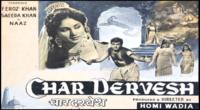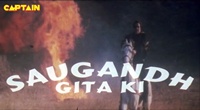The examples and perspective in this article deal primarily with Europe and the United States and do not represent a worldwide view of the subject. (November 2013) (Learn how and when to remove this template message) |
In ordinary language, a crime is an unlawful act punishable by a state or other authority. The term "crime" does not, in modern criminal law, have any simple and universally accepted definition, though statutory definitions have been provided for certain purposes. The most popular view is that crime is a category created by law; in other words, something is a crime if declared as such by the relevant and applicable law. One proposed definition is that a crime or offence (or criminal offence) is an act harmful not only to some individual but also to a community, society or the state ("a public wrong"). Such acts are forbidden and punishable by law.
The notion that acts such as murder, rape and theft are to be prohibited exists worldwide. What precisely is a criminal offence is defined by criminal law of each country. While many have a catalogue of crimes called the criminal code, in some common law countries no such comprehensive statute exists.
The state (government) has the power to severely restrict one's liberty for committing a crime. In modern societies, there are procedures to which investigations and trials must adhere. If found guilty, an offender may be sentenced to a form of reparation such as a community sentence, or, depending on the nature of their offence, to undergo imprisonment, life imprisonment or, in some jurisdictions, execution.
Usually, to be classified as a crime, the "act of doing something criminal" (actus reus) must – with certain exceptions – be accompanied by the "intention to do something criminal" (mens rea).
While every crime violates the law, not every violation of the law counts as a crime. Breaches of private law (torts and breaches of contract) are not automatically punished by the state, but can be enforced through civil procedure.
Contents
Overview
When informal relationships and sanctions prove insufficient to establish and maintain a desired social order, a government or a state may impose more formalized or stricter systems of social control. With institutional and legal machinery at their disposal, agents of the State can compel populations to conform to codes and can opt to punish or attempt to reform those who do not conform.
Authorities employ various mechanisms to regulate (encouraging or discouraging) certain behaviors in general. Governing or administering agencies may for example codify rules into laws, police citizens and visitors to ensure that they comply with those laws, and implement other policies and practices that legislators or administrators have prescribed with the aim of discouraging or preventing crime. In addition, authorities provide remedies and sanctions, and collectively these constitute a criminal justice system. Legal sanctions vary widely in their severity; they may include (for example) incarceration of temporary character aimed at reforming the convict. Some jurisdictions have penal codes written to inflict permanent harsh punishments: legal mutilation, capital punishment or life without parole.
Usually, a natural person perpetrates a crime, but legal persons may also commit crimes. Conversely, at least under U.S. law, nonpersons such as animals cannot commit crimes.
The sociologist Richard Quinney has written about the relationship between society and crime. When Quinney states "crime is a social phenomenon" he envisages both how individuals conceive crime and how populations perceive it, based on societal norms.
Etymology
The word crime is derived from the Latin root cern?, meaning "I decide, I give judgment". Originally the Latin word cr?men meant "charge" or "cry of distress." The Ancient Greek word krima (?????), from which the Latin cognate derives, typically referred to an intellectual mistake or an offense against the community, rather than a private or moral wrong.
In 13th century English crime meant "sinfulness", according to etymonline.com. It was probably brought to England as Old French crimne (12th century form of Modern French crime), from Latin crimen (in the genitive case: criminis). In Latin, crimen could have signified any one of the following: "charge, indictment, accusation; crime, fault, offense".
The word may derive from the Latin cernere – "to decide, to sift" (see crisis, mapped on Kairos and Chronos). But Ernest Klein (citing Karl Brugmann) rejects this and suggests *cri-men, which originally would have meant "cry of distress". Thomas G. Tucker suggests a root in "cry" words and refers to English plaint, plaintiff, and so on. The meaning "offense punishable by law" dates from the late 14th century. The Latin word is glossed in Old English by facen, also "deceit, fraud, treachery", . Crime wave is first attested in 1893 in American English.
Definition
England and Wales
Whether a given act or omission constitutes a crime does not depend on the nature of that act or omission. It depends on the nature of the legal consequences that may follow it. An act or omission is a crime if it is capable of being followed by what are called criminal proceedings.
History
The following definition of "crime" was provided by the Prevention of Crimes Act 1871, and applied for the purposes of section 10 of the Prevention of Crime Act 1908:
The expression "crime" means, in England and Ireland, any felony or the offence of uttering false or counterfeit coin, or of possessing counterfeit gold or silver coin, or the offence of obtaining goods or money by false pretences, or the offence of conspiracy to defraud, or any misdemeanour under the fifty-eighth section of the Larceny Act, 1861.
Scotland
For the purpose of section 243 of the Trade Union and Labour Relations (Consolidation) Act 1992, a crime means an offence punishable on indictment, or an offence punishable on summary conviction, and for the commission of which the offender is liable under the statute making the offence punishable to be imprisoned either absolutely or at the discretion of the court as an alternative for some other punishment.
Sociology
A normative definition views crime as deviant behavior that violates prevailing norms – cultural standards prescribing how humans ought to behave normally. This approach considers the complex realities surrounding the concept of crime and seeks to understand how changing social, political, psychological, and economic conditions may affect changing definitions of crime and the form of the legal, law-enforcement, and penal responses made by society.
These structural realities remain fluid and often contentious. For example: as cultures change and the political environment shifts, societies may criminalise or decriminalise certain behaviours, which directly affects the statistical crime rates, influence the allocation of resources for the enforcement of laws, and (re-)influence the general public opinion.
Similarly, changes in the collection and/or calculation of data on crime may affect the public perceptions of the extent of any given "crime problem". All such adjustments to crime statistics, allied with the experience of people in their everyday lives, shape attitudes on the extent to which the State should use law or social engineering to enforce or encourage any particular social norm. Behaviour can be controlled and influenced by a society in many ways without having to resort to the criminal justice system.
Indeed, in those cases where no clear consensus exists on a given norm, the drafting of criminal law by the group in power to prohibit the behaviour of another group may seem to some observers an improper limitation of the second group's freedom, and the ordinary members of society have less respect for the law or laws in general – whether the authorities actually enforce the disputed law or not.
Other definitions
Legislatures can pass laws (called mala prohibita) that define crimes against social norms. These laws vary from time to time and from place to place: note variations in gambling laws, for example, and the prohibition or encouragement of duelling in history. Other crimes, called mala in se, count as outlawed in almost all societies, (murder, theft and rape, for example).
English criminal law and the related criminal law of Commonwealth countries can define offences that the courts alone have developed over the years, without any actual legislation: common law offences. The courts used the concept of malum in se to develop various common law offences.
Criminalization
One can view criminalization as a procedure deployed by society as a preemptive harm-reduction device, using the threat of punishment as a deterrent to anyone proposing to engage in the behavior causing harm. The State becomes involved because governing entities can become convinced that the costs of not criminalizing (through allowing the harms to continue unabated) outweigh the costs of criminalizing it (restricting individual liberty, for example, to minimize harm to others).
Criminalization may provide future harm reduction at least to the outside population, assuming those shamed or incarcerated or otherwise restrained for committing crimes start out more prone to criminal behaviour. Likewise, one might assume that criminalizing acts that in themselves do not harm other people ("victimless crimes") may prevent subsequent harmful acts (assuming that people "prone" to commit these acts may tend to commit harmful actions in general). Some see the criminalization of "victimless crimes" as a pretext for imposing personal, religious or moral convictions on otherwise productive citizens or taxpayers.
Some commentators may see criminalization as a way to make potential criminals pay or suffer for their prospective crimes. In this case, criminalization becomes a way to set the price that one must pay to society for certain actions considered detrimental to society as a whole. An extreme view might see criminalization as state-sanctioned revenge.
States control the process of criminalization because:
- Even if victims recognize their own role as victims, they may not have the resources to investigate and seek legal redress for the injuries suffered: the enforcers formally appointed by the State often have better access to expertise and resources.
- The victims may only want compensation for the injuries suffered, while remaining indifferent to a possible desire for deterrence.
- Fear of retaliation may deter victims or witnesses of crimes from taking any action. Even in policed societies, fear may inhibit from reporting incidents or from co-operating in a trial.
- Victims, on their own, may lack the economies of scale that could allow them to administer a penal system, let alone to collect any fines levied by a court. Garoupa & Klerman (2002) warn that a rent-seeking government has as its primary motivation to maximize revenue and so, if offenders have sufficient wealth, a rent-seeking government will act more aggressively than a social-welfare-maximizing government in enforcing laws against minor crimes (usually with a fixed penalty such as parking and routine traffic violations), but more laxly in enforcing laws against major crimes.
- As a result of the crime, victims may die or become incapacitated.
Labelling theory
The label of "crime" and the accompanying social stigma normally confine their scope to those activities seen as injurious to the general population or to the State, including some that cause serious loss or damage to individuals. Those who apply the labels of "crime" or "criminal" intend to assert the hegemony of a dominant population, or to reflect a consensus of condemnation for the identified behavior and to justify any punishments prescribed by the State (in the event that standard processing tries and convicts an accused person of a crime).
Natural-law theory
Justifying the State's use of force to coerce compliance with its laws has proven a consistent theoretical problem. One of the earliest justifications involved the theory of natural law. This posits that the nature of the world or of human beings underlies the standards of morality or constructs them. Thomas Aquinas wrote in the 13th century: "the rule and measure of human acts is the reason, which is the first principle of human acts" (Aquinas, ST I-II, Q.90, A.I). He regarded people as by nature rational beings, concluding that it becomes morally appropriate that they should behave in a way that conforms to their rational nature. Thus, to be valid, any law must conform to natural law and coercing people to conform to that law is morally acceptable. In the 1760s William Blackstone (1979: 41) described the thesis:
- "This law of nature, being co-eval with mankind and dictated by God himself, is of course superior in obligation to any other. It is binding over all the globe, in all countries, and at all times: no human laws are of any validity, if contrary to this; and such of them as are valid derive all their force, and all their authority, mediately or immediately, from this original."
But John Austin (1790–1859), an early positivist, applied utilitarianism in accepting the calculating nature of human beings and the existence of an objective morality. He denied that the legal validity of a norm depends on whether its content conforms to morality. Thus in Austinian terms a moral code can objectively determine what peo
Watch movie Criminal online on Amazon
Watch movie Criminal online
Watch The Movie On PrimeKabzaa-The Mafia Raaj Full HD Movie Download

99.9 FM-Nothing is 100% Full HD Movie Download

Billo Badshah Full HD Movie Download

Mere Humdum Mere Dost Full HD Movie Download

Shree Krishna Leela Full HD Movie Download

Char Darvesh Full HD Movie Download

Panaah Full HD Movie Download

Ekka Raja Rani Full HD Movie Download

Saugandh Geeta Ki Full HD Movie Download

Chase Full HD Movie Download

Kaliyugam Full HD Movie Download

Unchi Medina Uncha Mol Full HD Movie Download

Entinti Ramayanam Full HD Movie Download

Velaikkaran Full HD Movie Download

Pelli Pusthakam Full HD Movie Download

Kalshekhar Aahet Ka Full HD Movie Download

Tenali Raman Full HD Movie Download

Bangaru Bhoomi Full HD Movie Download

Edurinti Mogudu Pakkinti Pellam Full HD Movie Download

Hum Tum Full HD Movie Download

Luv Ka The End Full HD Movie Download

Download latest Movie from bollywood
- 1> baaghi 3
- 2> THE SKY IS PINK MOVIE FULL STORY AND REVIEW
- 3> Luka Chuppi
- 4> TO ALL THE BOYS I’VE LOVED BEFORE
- 5> Kabir Singh
- 6> Street Dancer 3D
- 7> Simmba
- 8> Gone Girl
- 9> The Girl Who Lived
- 10> Ludo
- 11> DILWALE DULHANIA LE JAYENGE
- 12> GUILTY
- 13> The Godfather
- 14> Adventures of Rusty
- 15> Sooryavanshi
- 16> Satyameva Jayate 2
- 17> Thappad
- 18> Bhool Bhulaiyaa 2
- 19> KGFChapter 2
- 20> Mardaani 2
- 21> Pinjar
- 22> Shivaji maharaj
- 23> Ek Villian 2
- 24> Hungama 2
- 25> Divergent
- 26> Mumbai Saga
- 27> The Internship
- 28> HIT (telugu)
- 29> Panga
- 30> The perfect date
- 31> 16 December
- 32> Gopala Gopala (Telugu)
- 33> Brahmastra
- 34> Gangubai Kathiawadi
- 35> Manmadhudu
- 36> Nenu local
- 37> Mahanati
- 38> Shatamanam bavathi
- 39> Lagaan
- 40> After
- 41> MOM
- 42> Shamshera
- 43> Raguvaran BTech
- 44> Khakee
- 45> The villain
- 46> OM
- 47> Mr. perfect
- 48> Bueatifull mind
- 49> Hichki
- 50> Gabbar Singh
- 51> Jogi
- 52> Before Sunrise
- 53> Before Sunset
- 54> Before Midnight
- 55> The Big Bull
- 56> Top Gun: Maverick
- 57> The Purge
- 58> The Sky is Pink
- 59> Laxmmi Bomb
- 60> Sadak 2
- 61> Sufna
- 62> Prithviraj
- 63> PK
- 64> Coolie No 1(2020)
- 65> Black Widow
- 66> Dear Zindagi
- 67> Dil Bechara
- 68> PHIR HERA PHERI
- 69> WAR
- 70> Dostana
- 71> RRR: Roudram Ranam Rudhiram
- 72> Maidan
- 73> Dabbang 3
- 74> Chhalaang
- 75> life as we know it
- 76> SherShaah
- 77> Sandeep Aur Pinky Faraar
- 78> Event Horizon
- 79> 83
- 80> Radhe: Your Most Wanted Bhai
- 81> Gunjan Saxena: The Kargil Girl
- 82> Mr India
- 83> Vivah
- 84> Anokha Bandhan
- 85> Ghost
- 86> Bhoot: Part One - The Haunted Ship
- 87> Haseen Dilruba
- 88> Laal Singh Chaddha
- 89> Qismat
- 90> Rajput
- 91> Drive
- 92> Dil Chahta Hai
- 93> Dil Ki Baazi
- 94> Dil Ka Rishta
- 95> Teesri Manzil
- 96> Dil
- 97> Love Aaj Kal
- 98> Khaali Peeli
- 99> Bunty Aur Babli 2
- 100> Atrangi Re
- 101> Gulabo Sitabo
- 102> Jodi
- 103> Suraj Pe Mangal Bhari
- 104> Deewana
- 105> Attack
- 106> Sardar Udham Singh
- 107> Toofan
- 108> THE LOVEBIRDS
- 109> Jersey
- 110> Ginny Weds Sunny
- 111> Thalaivi
- 112> Shiddat
- 113> Angels vs Zombies
- 114> Koi Mil Gya
- 115> Thank God
- 116> Bhuj: The Pride of India
- 117> Hum Aapke Hain Kaun
- 118> The Platform
- 119> Bird Box
- 120> Roohi Afzana
- 121> Torbaaz
- 122> Nikamma
- 123> World War Z
- 124> Extraction
- 125> Train to Busan
- 126> Life of Pi
- 127> SHAADI MEIN JROOR AANA
- 128> Himmat Aur Mehnat
- 129> To All The Boys: P.S. I Still Love You
- 130> Mimi
- 131> Good Newwz
- 132> Shubh Mangal Zyada Saavdhan
- 133> Raabta
- 134> Harry Potter and the Philosopher's Stone
- 135> Harry Potter and the Chamber of Secrets
- 136> Chhapaak
- 137> War of the Worlds
- 138> Harry Potter and the Prisoner of Azkaban
- 139> Harry Potter and the Goblet of Fire
- 140> MURDER MYSTERY
- 141> Shakuntala Devi
- 142> Bachchan Pandey
- 143> Jayeshbhai Jordar
- 144> Sheer Qorma
- 145> Saina
- 146> 'O' Pushpa I hate tears
- 147> Kedarnath
- 148> MS Dhoni The Untold Story
- 149> Chhichhore
- 150> Badhaai Ho
- 151> Unstoppable
- 152> Oz the Great And Powerful
- 153> The Girl on the Train
- 154> Haathi Mere Saathi 2020
- 155> The Conjuring: The Devil Made Me Do It
- 156> Gandhi Se Pehle Gandhi
- 157> The Song of Scorpions
- 158> Srimanthudu
- 159> Hello Guru Prema Kosame
- 160> Beauty and The Beast
- 161> Black Panther
- 162> Charlie and the Chocolate Factory
- 163> Bole Chudiyan
- 164> Fidaa
- 165> Duvvada Jagannadham
- 166> Bruce Lee: The Fighter
- 167> Hyper
- 168> Yaara
- 169> Red (2020)
- 170> Shivam
- 171> That Is Mahalakshmi
- 172> Nishabdham
- 173> Aashram 2020 web series
- 174> Laxmii
- 175> Mismatched
- 176> STUDENT OF THE YEAR 2
- 177> NAIL POLISH
- 178> Ramprasad Ki Tehrvi
- 179> KAAGAZ
- 180> 12 o Clock
- 181> The Power
- 182> bolo hau
- 183> Tribhanga
- 184> JAMUN
- 185> Madam Chief Minister
- 186> Maasaab
- 187> Aadhaar
- 188> Tanhaji
- 189> Bhaagi 3
- 190> Bhootnath
- 191> MALANG
- 192> Jai Mummy Di
- 193> Haathi Mere Saathi 2021
- 194> Shakeela
- 195> Unpaused
- 196> Annayya
- 197> Vamsoddharakudu
- 198> Mrugaraju
- 199> Narasimha Naidu
- 200> Sankranti
- 201> Manasu Maata Vinadhu
- 202> Anjaane
- 203> Apaharan
- 204> Bachke Rehna Re Baba
- 205> Bewafaa
- 206> Roohi
- 207> Radhe
- 208> Zindagi Khoobsoorat Hai
- 209> Yeh Mohabbat Hai
- 210> Yeh Kya Ho Raha Hai?
- 211> The Tomorrow War
- 212> DehradunDiary
- 213> Meri Shaadi Karaoo
- 214> Matruu Ki Bijlee Ka Mandola
- 215> No One Killed Jesica
- 216> Aag Ka Goola
- 217> Eight Million Dollars
- 218> Three Hundred
- 219> Cats and Dog
- 220> Decoy
- 221> Gold Rush
- 222> You Have Got Mail
- 223> Final Destination three
- 224> Tofan
- 225> Jungle
